Fall 2018
4
"A Hybrid Investigation"
with Paisley Rekdal
Darien Gee (Class of 2019)
"A Hybrid Investigation"
with Paisley Rekdal
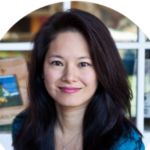
Darien Gee
Class of 2019
Paisley Rekdal, the Rainier Writing Workshop’s 2018 Judith Kitchen Visiting Writer, knows her way around form and genre. She is not a nonfiction writer who dabbles in poetry, nor a poet with a mere penchant for nonfiction. Acclaimed and accomplished in both, Rekdal is the author of five books of poetry, two nonfiction titles, and one hybrid book, Intimate: A Family Portrait, a creative synthesis of memoir, personal essay, historical documentary, photography, and poetry. Rekdal’s most recent nonfiction title, The Broken Country, took home the 2016 AWP Award for Creative Nonfiction, and “Quiver” and other poems were awarded the 2018 Narrative Prize from Narrative Magazine.
Rekdal, Utah’s poet laureate, inhabits literary forms in such a way that while she might reject the label of “expert,” she is unquestionably an authority. If you saw her walking towards the Scandinavian Center for her reading or on her way to teach a master class in Admin 204A, you might have sensed this as well—Rekdal is a writer with poise and grace, willing to go where no writer has gone before.
“I’m not sure if the form or the subject matter comes first,” Rekdal mused when we spoke by phone about the evolution of her creative process. “In Intimate, my more experimental work, it was a question of finding the form. I thought it was poetry, but that was insufficient.” This launched Rekdal on “a hybrid investigation,” striving to connect the form with the scope of the project.
In sharing my observations about her confidence as a writer exploring new territory, she laughed. “I’m very leery of everything I’ve written because I always feel like I shouldn’t be writing this. [There’s] a real nervousness and terror. Should I be writing this and should I be writing it this way?”
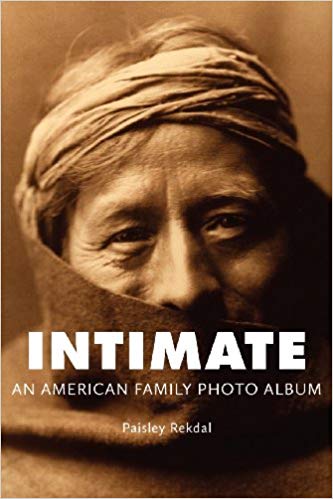
Intimate by Paisley Rekdal.
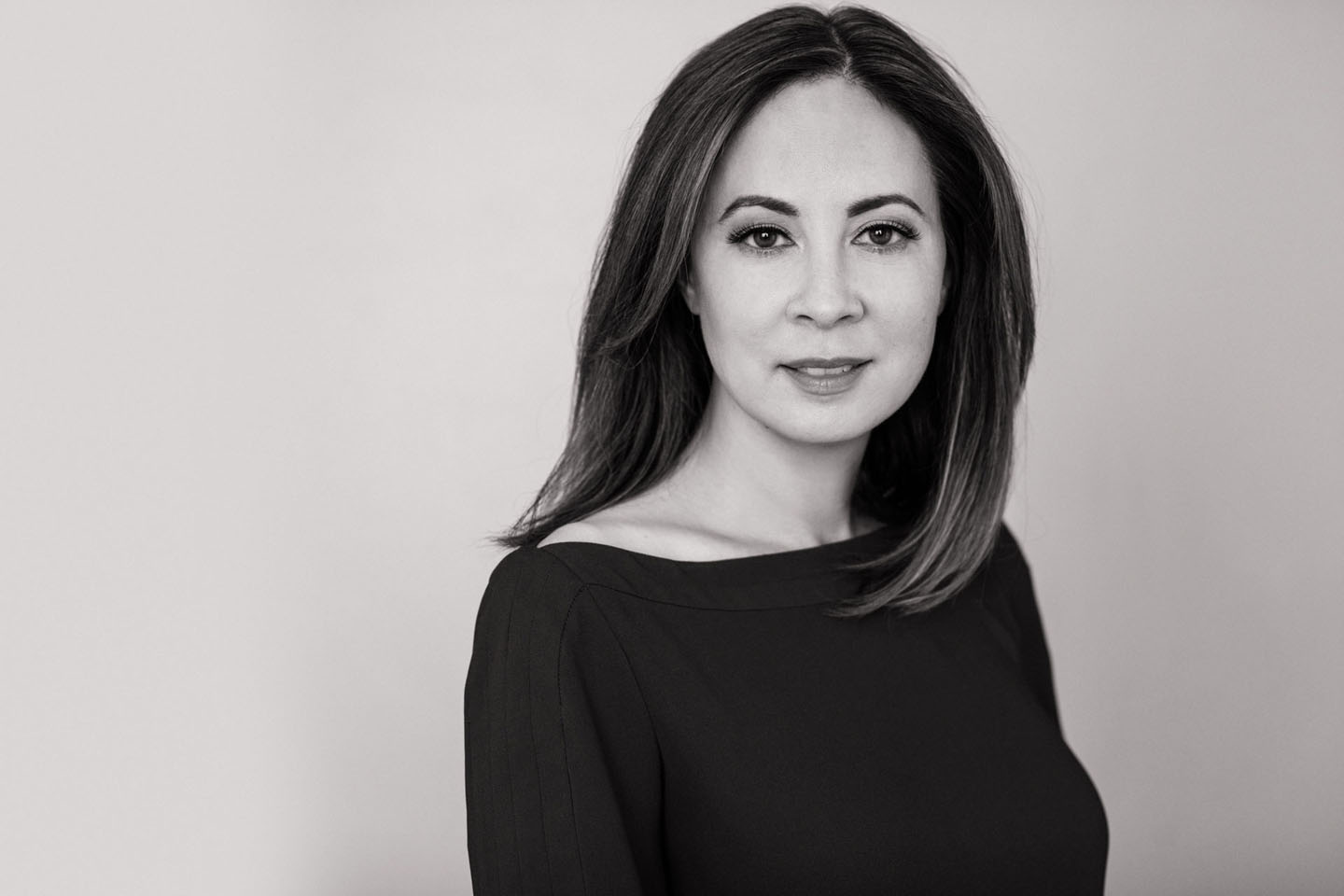
Paisley Rekdal. Photo by Emily London.
Rekdal’s reading at Pacific Lutheran University this past August exhibited her vast range. One of her readings was from Imaginary Vessels, her latest collection of poetry. MFA student Nathaniel Youmans (2020), who had the opportunity to visit with Rekdal over dinner, considers her work “polyvocal”—that is, having an ability to effortlessly inhabit a multitude of voices, from Mae West to a sonnet sequence inspired by anonymous skulls unearthed in a mass grave beneath a Colorado state psychiatric facility. “She has a moral sense of fidelity to her numerous subjects,” Youmans says. “Rekdal’s is a deep, self-reflexive critique, one that performs the vital tasks of the humanities.”
MFA student Jenny Apostol (2020), a nonfiction essayist and former National Geographic producer, joined me for Rekdal’s master class on the day following her reading. Entitled “Prosthetic Memory,” the class, inspired by Rekdal’s research on the work of media scholar Angela Landsberg, looked at how technology and media allow us to share collective memories that become a means of experiencing historical events we may not have lived; in viewing these accounts, we may adopt our response as our own personal narrative. Reflecting on the class and the selections from Theresa Hak Kyung Cha’s Dictee that were discussed, Apostol says the class “was an opening for my own work and scholarship.” She, too, is inspired by the range of form in Rekdal’s work and “the various voices her writing can inhabit.”
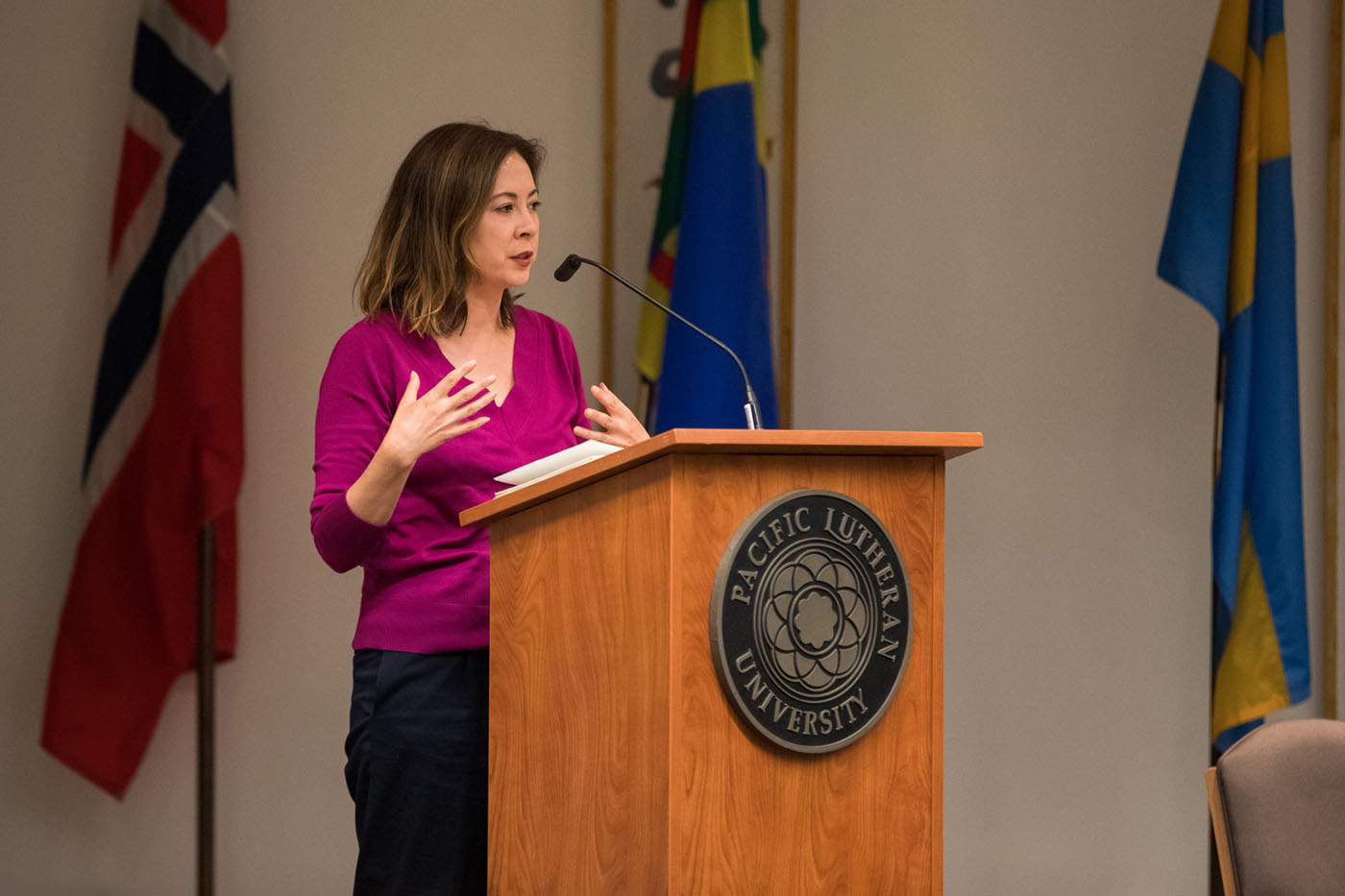
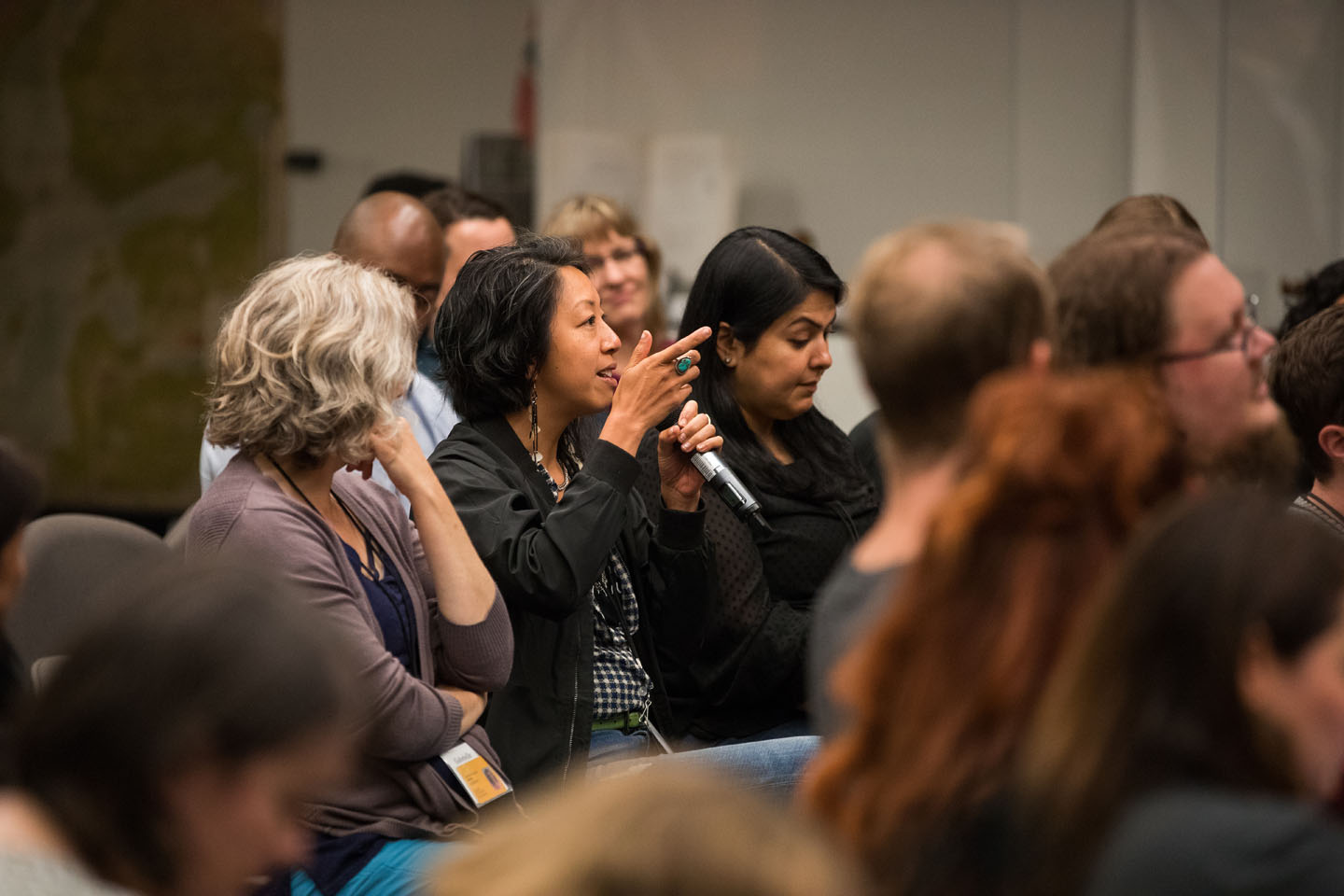
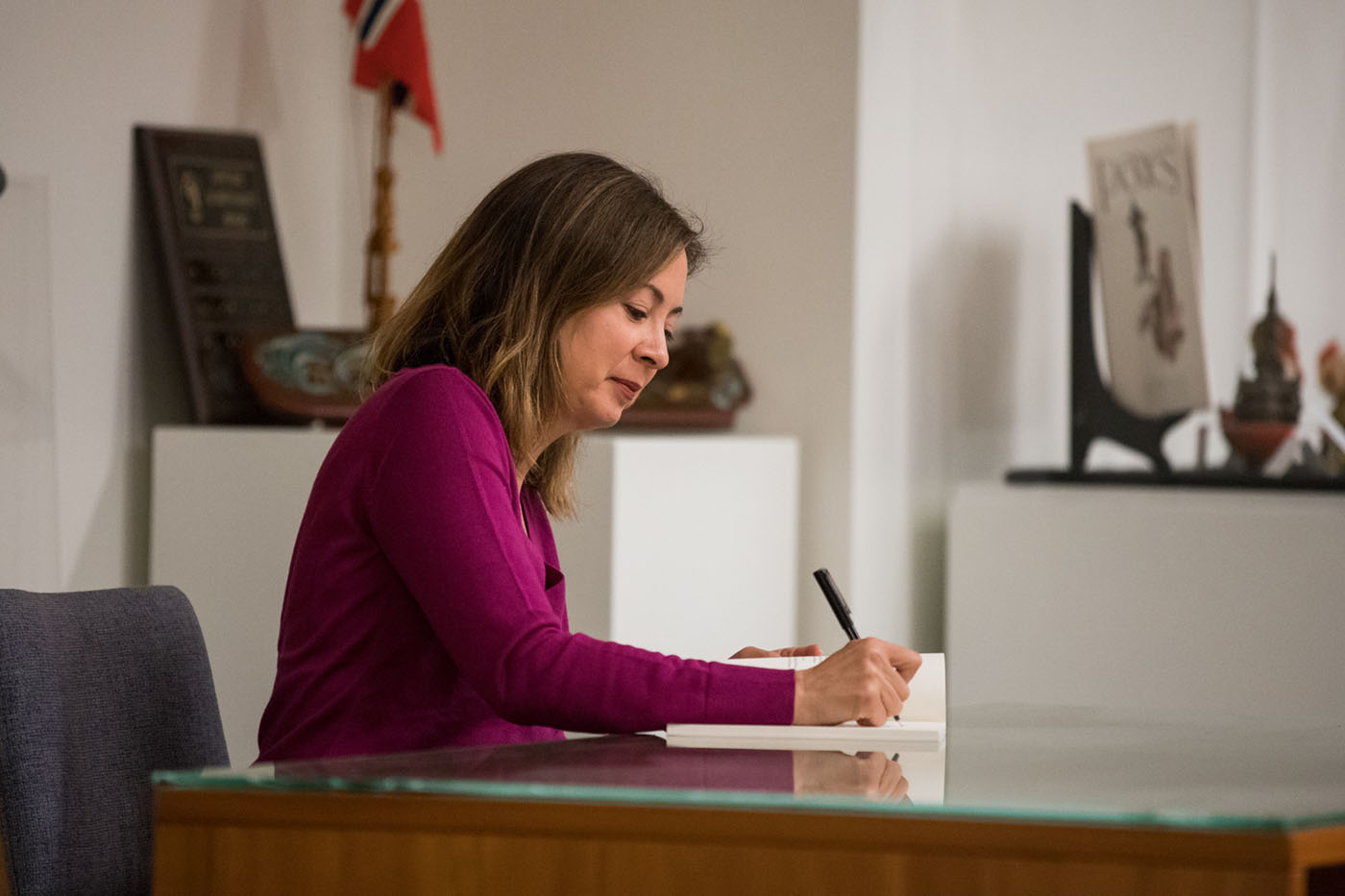
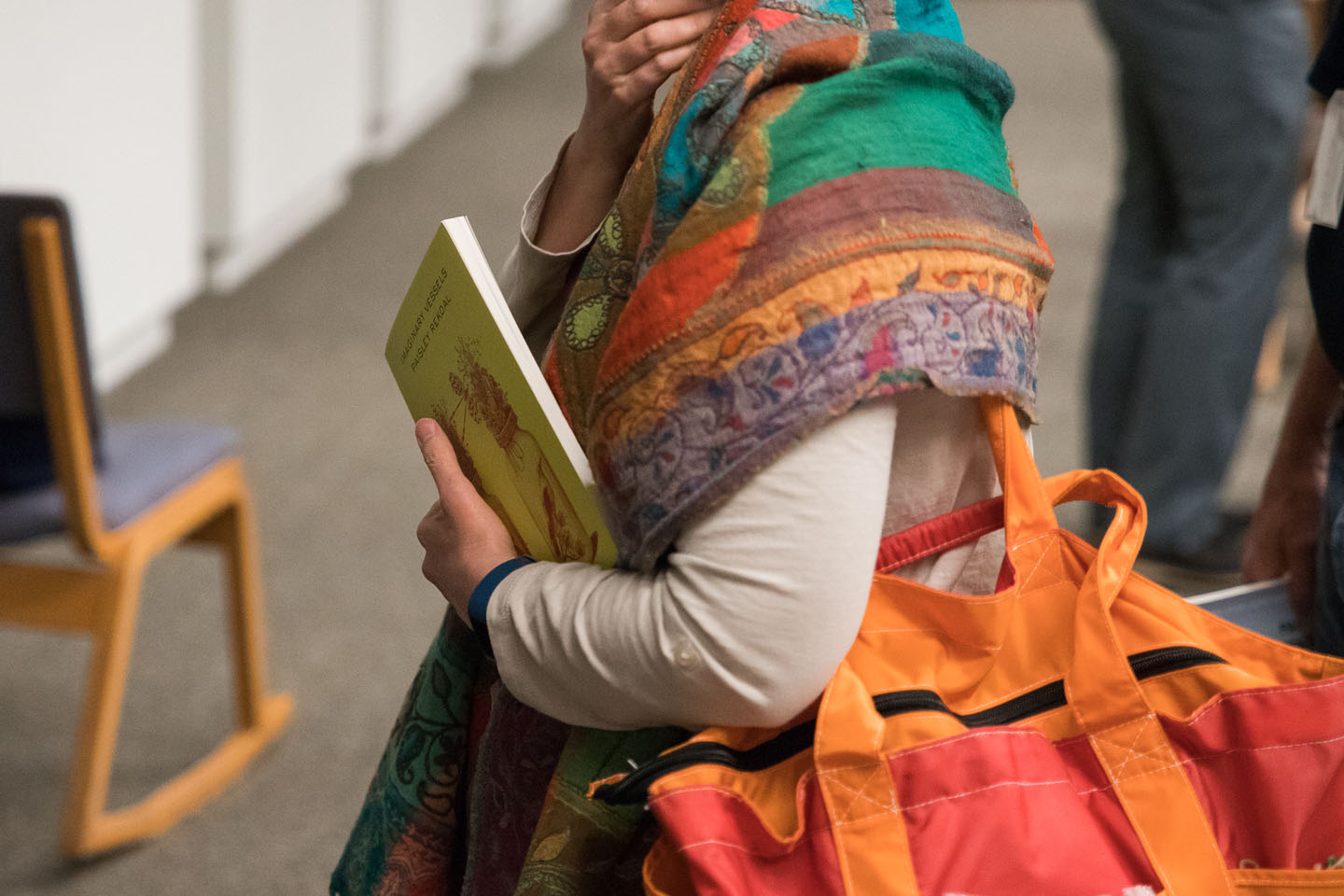
RWW Residency with Rekdal. Photos by Jason Comerford.
The “Prosthetic Memory” class was an extension of Rekdal’s work with The Broken Country, an examination of cultural trauma and the inter-generational legacies of the Vietnam War. It carries the seed of her next book, Appropriate: A Provocation, forthcoming from Norton in 2020. A book-length essay, Appropriate attempts to re-contextualize cultural appropriation. It probes and pokes: What does it mean when we talk about racial identity, historical narratives, and cultural memory? Do we unfairly demonize? What biases and assumptions do we harbor? “The terror is back,” she said, “because pretty much everyone is going to be mad regardless of the ending. I’m not going to say yes or no, right or wrong. It’s a question that has to be asked every few years as gender and race are constantly redefined.”
A professor of English at the University of Utah, Rekdal recalled witnessing the formation of RWW’s mentorships over dinner, after first- and second-year participants discovered earlier in the day who their mentors for the coming year would be. Rekdal took note of the casual relationships she observed between mentors and mentees during her visit with us. “I’m struck by how this faculty actively mentors,” she told me. “It’s intimate; it allows for a much deeper read on the work. You have someone who has your back.” While writers playing with different forms don’t need permission to experiment, it helps to have people in your corner to enrich and challenge the conversation, to chart the critical terrain of our work. You can bet that Paisley Rekdal is one of them.
Darien Gee's work has appeared in various literary journals. Her collection of micro-narratives about her grandfather’s three wives was most recently shortlisted as a finalist for the Tupelo Quarterly Prose Open Prize. Her fiction has been published by Penguin Random House, and she is the author of an award-winning craft book on writing memoir. Darien lives in Hawaii with her family and will graduate from the Rainier Writing Workshop in 2019.
